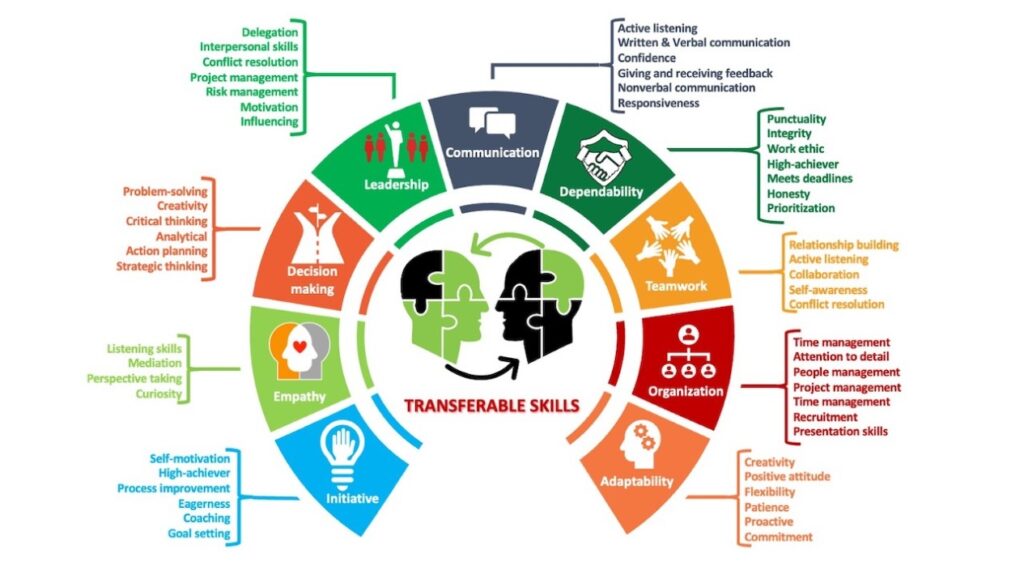1. Introduction
Choosing a Career Councelling can be one of the most important decisions in a person’s life. It can determine not only their financial future, but also their overall happiness and fulfillment. With the vast array of career options available today, navigating this decision can feel overwhelming. That’s why many individuals turn to professional career counselors for guidance and support.
These experts have the knowledge and experience to help individuals explore their interests, skills, and values, and find the perfect career match. In this blog, we will delve into the art of finding the perfect career, and share insights and tips from professional career counselors to help you make the best career decision for yourself.

2. The importance of finding the perfect career
Finding the perfect career is not just about earning a paycheck, but rather about finding a sense of purpose and fulfillment in our professional lives. A career that aligns with our passions, interests, and values can lead to increased job satisfaction and overall happiness. It allows us to tap into our true potential and make a meaningful impact in our chosen field.
Moreover, the right career path offers opportunities for personal and professional growth. It allows us to continually learn and develop new skills, which can lead to advancement and increased earning potential. It also provides a sense of stability and security, knowing that we are in a field that is in demand and provides opportunities for long-term growth.
In the next section, we will explore the various factors that play a role in finding the perfect career and how professional career counselors can help navigate through this process. Stay tuned for expert advice and strategies that can guide you on your journey towards finding the career that is a perfect fit for you.

3. The role of professional career counselors
Professional career counselors play a crucial role in helping individuals find the perfect career. These experts have the knowledge and expertise to guide individuals through the complex process of career exploration and decision-making.
One of the main responsibilities of career counselors is to help individuals assess their interests, skills, and values. By conducting assessments and engaging in discussions, they help individuals gain a deeper understanding of themselves and what they want in a career. This self-awareness is essential in identifying potential career paths that align with their strengths and passions.
Career counselors also provide valuable insights into the current job market and industry trends. They stay up to date on the latest developments in various fields and can offer guidance on which industries are growing and which are facing challenges. This information is vital for individuals to make informed decisions about their career paths.
Additionally, career counselors assist individuals in researching different careers and gathering information about the qualifications, skills, and experience required for each field. They can help individuals identify potential barriers or gaps in their current skills and provide recommendations on how to bridge those gaps.
Furthermore, professional career counselors help individuals navigate through the job search process. They can assist in crafting effective resumes and cover letters, provide tips for successful interviews, and offer networking strategies to help individuals connect with professionals in their desired fields.
In conclusion, professional career counselors play a critical role in helping individuals find the perfect career. They provide guidance and support throughout the career exploration and decision-making process, helping individuals make informed choices that align with their interests, skills, and values.
4. Understanding your strengths, interests, and values
Understanding your strengths, interests, and values is a crucial part of the career exploration process. Professional career counselors excel in helping individuals gain this self-awareness, which is essential for making informed career decisions.
Strengths: Discovering your strengths involves identifying the skills and abilities that come naturally to you. Career counselors can help you assess your strengths through various tools and exercises. By recognizing your strengths, you can identify career paths that allow you to leverage these abilities and excel in your chosen field.
Interests: Exploring your interests involves discovering the activities and subjects that genuinely inspire and engage you. Career counselors can provide resources and assessments to help you uncover your passions. Understanding your interests allows you to find a career that aligns with your true passions, ensuring that you will be genuinely excited about your work.
Values: Determining your values involves identifying the principles and beliefs that guide your life decisions. Career counselors can help you explore your values through discussions and exercises. By aligning your career with your values, you can ensure that your work is fulfilling and meaningful to you.
5. Exploring different career options
Exploring different career options is a crucial step in finding the perfect career. Once you have gained an understanding of your strengths, interests, and values, it is time to start researching and exploring various career paths.
Professional career counselors can provide valuable guidance on how to explore different career options. They can provide resources such as books, websites, and online tools that offer in-depth information about various industries and professions. Additionally, they can help you connect with professionals in different fields through networking events or informational interviews.
It is important to approach this exploration phase with an open mind. Don’t limit yourself to only the careers that you are already familiar with. Take the opportunity to learn about new industries and roles that you may not have considered before.
By exploring different career options, you can broaden your horizons and gain a better understanding of the possibilities available to you.

6. Gaining practical experience through internships and part-time jobs
Gaining practical experience through internships and part-time jobs is a vital step in finding the perfect career. While researching different career options, it is important to gain hands-on experience in the fields that interest you.
Internships allow you to work in a specific industry or company for a set period of time, providing you with an opportunity to learn about the daily tasks, responsibilities, and challenges that come with that career. Part-time jobs, on the other hand, can give you a chance to test the waters before committing to a full-time role.
Not only will internships and part-time jobs give you a taste of what it’s like to work in a particular field, but they will also allow you to develop relevant skills and build a network of professional contacts. This practical experience will not only enhance your resume but also help you make informed decisions about your future career path.
In the next section, we will delve deeper into the benefits of internships and part-time jobs and provide tips on how to make the most of these opportunities. Stay tuned and continue on your journey to finding the perfect career.
7. Utilizing networking and mentorship opportunities
One of the most valuable resources in finding the perfect career is the power of networking and mentorship. Building relationships with professionals in your desired field can open doors to job opportunities, provide guidance and advice, and offer valuable insights into the industry.
Attending networking events, industry conferences, and job fairs can help you connect with professionals who can share their experiences and offer valuable advice. Additionally, utilizing online platforms like LinkedIn can expand your professional network and enable you to connect with industry leaders and influencers.
Mentorship is another powerful tool that can guide you in your career journey. A mentor can provide you with personalized advice, help you navigate career challenges, and share their own experiences and knowledge.
8. Navigating career transitions and advancements
Navigating career transitions and advancements is an essential part of finding the perfect career. As professionals, we understand that careers are not linear and often involve periods of change and growth. Whether you are looking to switch industries, move up the corporate ladder, or explore a different role within your current field, having a solid strategy in place can help you successfully navigate these transitions.
One approach is to assess your skills, interests, and values to determine the direction you want to take your career. This self-reflection will enable you to identify transferable skills and areas where you may need to acquire additional knowledge or experience.
Researching and networking within your desired industry or role can also provide valuable insights and connections. Attend industry-specific events, join relevant professional organizations, and engage with online communities to gain exposure and make important connections.
Additionally, investing in professional development opportunities can enhance your skills and make you more competitive in the job market.

9. Conclusion: The importance of seeking professional guidance in finding the perfect career
Navigating the various stages of a career can be overwhelming. As we discussed earlier, self-reflection, research, networking, and professional development are all essential strategies to successfully navigate career transitions and advancements. However, sometimes these steps may not be enough to find the perfect career fit.
This is where seeking professional guidance becomes crucial. Professional career counselors possess the expertise and resources to help you make informed decisions about your career path. They can provide valuable insight into different industries, help identify transferable skills, and offer guidance on educational and training opportunities that align with your goals.
Furthermore, career counselors can assist you in creating a personalized career plan, tailored to your unique aspirations and circumstances. They can offer advice on job search strategies, interview techniques, and even help negotiate job offers.
In conclusion, seeking the expertise of a professional career counselor can significantly enhance your chances of finding the perfect career fit. By combining their guidance with the strategies we discussed earlier, you will be well-equipped to excel in your professional journey.










